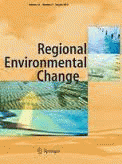This paper examines the development and use of scenarios as an approach to guide action in multi-level, multi-actor adaptation contexts such as food security under climate change. Three challenges are highlighted: (1) ensuring the appropriate scope for action; (2) moving beyond intervention-based decision guidance; and (3) developing long-term shared capacity for strategic planning. To overcome these challenges we have applied explorative scenarios and normative back-casting with stakeholders from different sectors at the regional level in East Africa. We then applied lessons about appropriate scope, enabling adaptation pathways, and developing strategic planning capacity to scenarios processes in multiple global regions. Scenarios were created to have a broad enough scope to be relevant to diverse actors, and then adapted by different actor groups to ensure their salience in specific decision contexts. The initial strategy for using the scenarios by bringing a range of actors together to explore new collaborative proposals had limitations as well as strengths versus the application of scenarios for specific actor groups and existing decision pathways. Scenarios development and use transitioned from an intervention-based process to an embedded process characterized by continuous engagement. Feasibility and long-term sustainability could be ensured by having decision makers own the process and focusing on developing strategic planning capacity within their home organizations.
DOI:
https://doi.org/10.1016/j.gloenvcha.2014.03.001
Altmetric score:
Dimensions Citation Count:
























